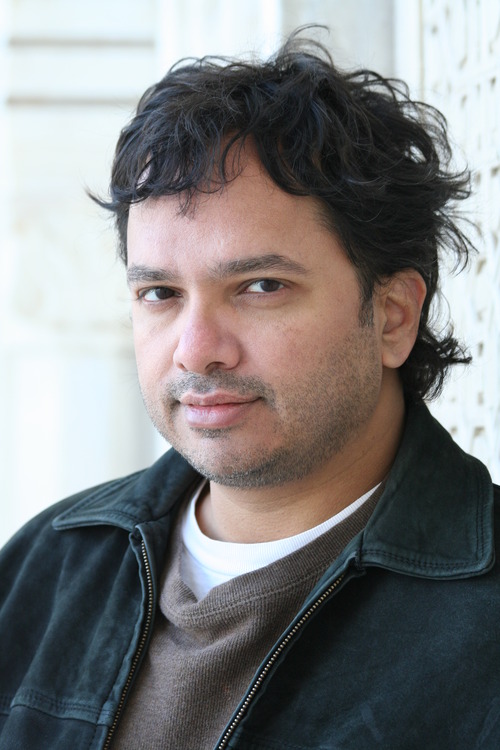
An Interview with Vikram Chandra
Vikram Chandra is the author of two novels, one short-story collection, and most recently a non-fiction book–Geek Sublime–that’s part memoir, part history of coding and part meditation on aesthetic pleasure.
After moving to the US from Bombay for college, Chandra pursued graduate degrees in film, and then writing, while supporting himself by coding. He currently lives in Oakland and teaches creative writing at UC Berkeley.
Chandra preferred to conduct this interview via email, because he “has an easier time answering questions in writing,” yet graciously invited me to get coffee. In person he spoke sharply, but with much energy and curiosity. Our conversation touched upon pre-modern detective thrillers, long-form television, and why the Indian left must act in order to prevent the right from completely appropriating the country’s rich cultural tradition. This interview focuses more on his new book.
Chandra’s first novel, Red Earth and Pouring Rain, and his short story collection both won Commonwealth Writers awards (for best first book, and best book—Eurasia region, respectively) and Sacred Games–his ‘magnum opus’, that among other things features a gangster in the throes of an existential crisis–was subject to a famous bidding war than ended in the author earning a one million dollar advance. Geek Sublime, as he mentions below, “has been published in three English-language markets with two different titles and three different subtitles; everyone’s trying to come up with some way to embody that mixture of themes.”
—Ratik Asokan
I: “KIND OF A FICTIVE TRANCE”
THE BELIEVER: The Indian edition of Geek Sublime is subtitled “My life in letters and code.” The first part of this phrase–‘my life’–strikes me now. Because your book isn’t like a traditional writer’s memoir: no failed short stories, no personal struggle. Instead you present detailed discussions of various issues—pre-modern Indian literary theory, the history of coding, gender issues in Silicon Valley to name a few—that are close to your heart. Was this an attempt to create a more profound portrait of an artist?
VIKRAM CHANDRA: I was worried about that subtitle, because—as you point out—the book itself isn’t very revealing of my inner life and romantic torments and so on. But the Indian publishers really wanted to indicate that it was not precisely an academic treatise about programming or writing either. Of course I wasn’t thinking of any of these issues as I wrote. I was trying to work out some thinking about literature, code, and pleasure, and I wanted to ground all this in my own lived experience as a writer of fiction. That is, to show...
You have reached your article limit
Sign up for a digital subscription and continue reading all new issues, plus our entire archives, for just $1.50/month.
Already a subscriber? Sign in




